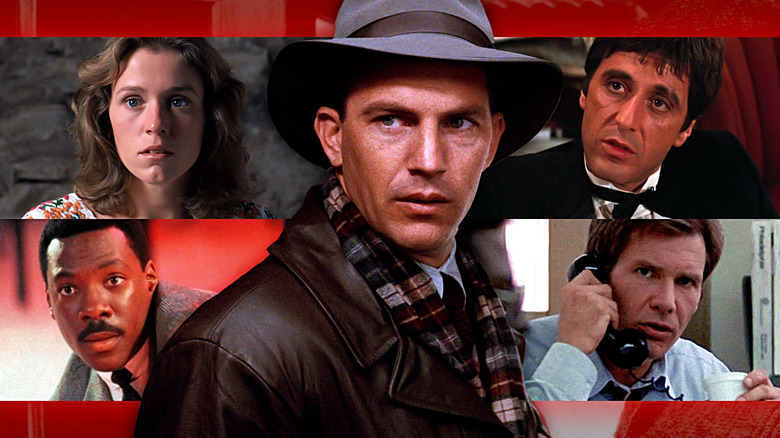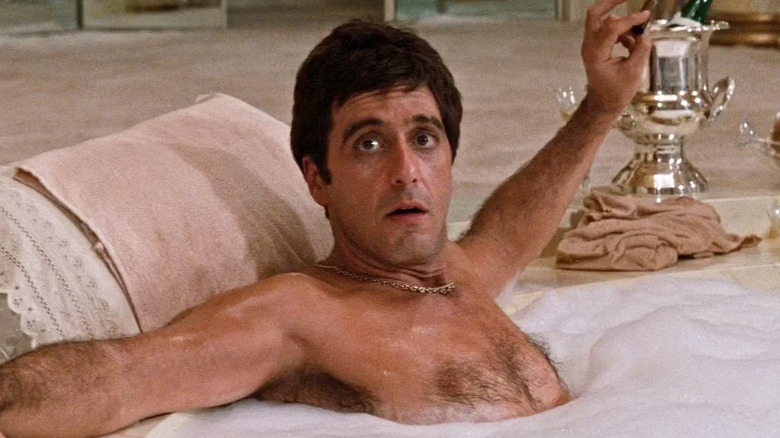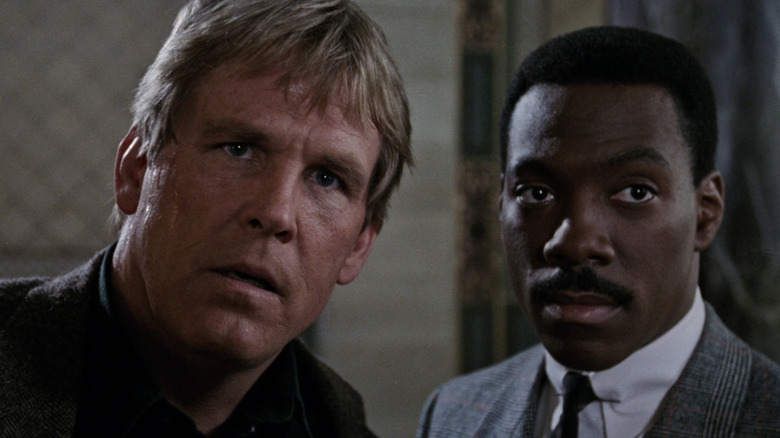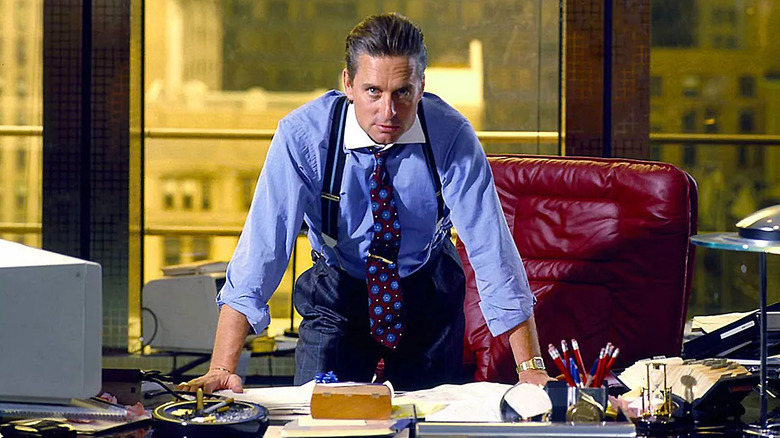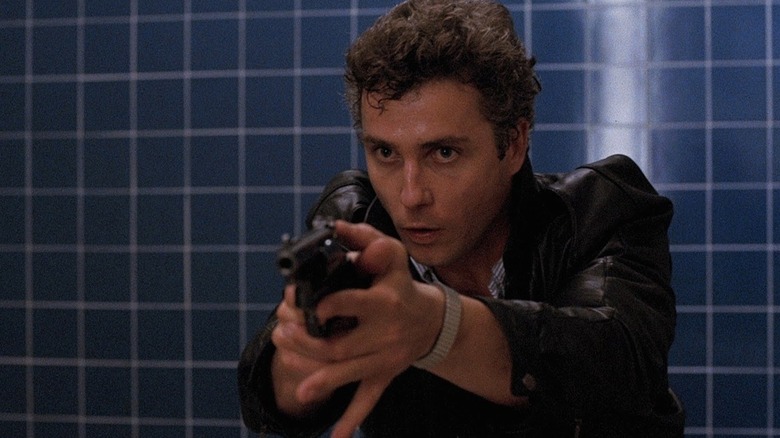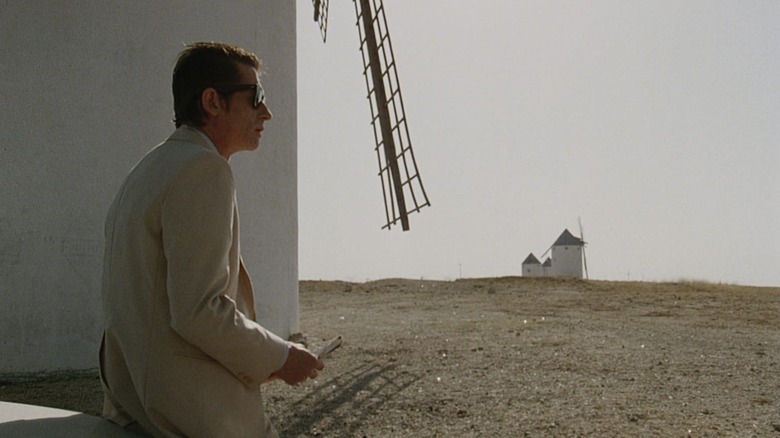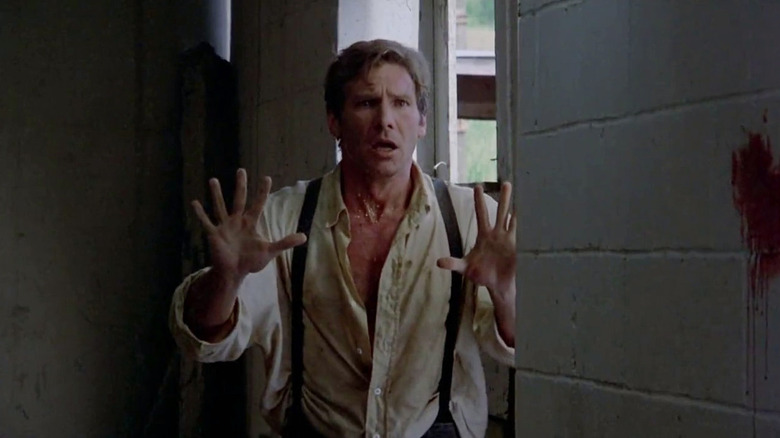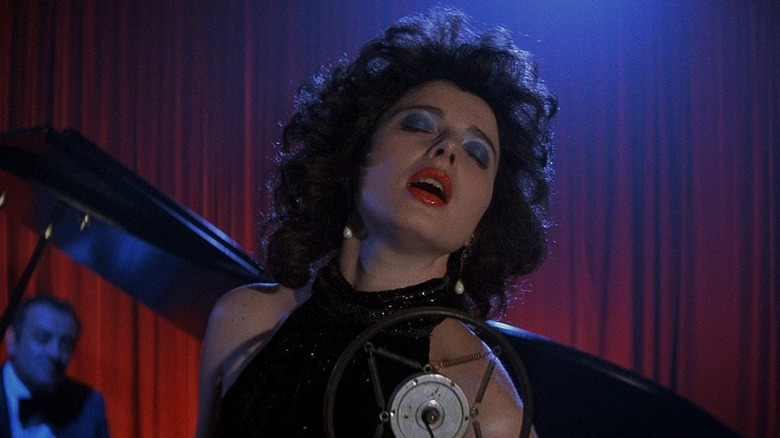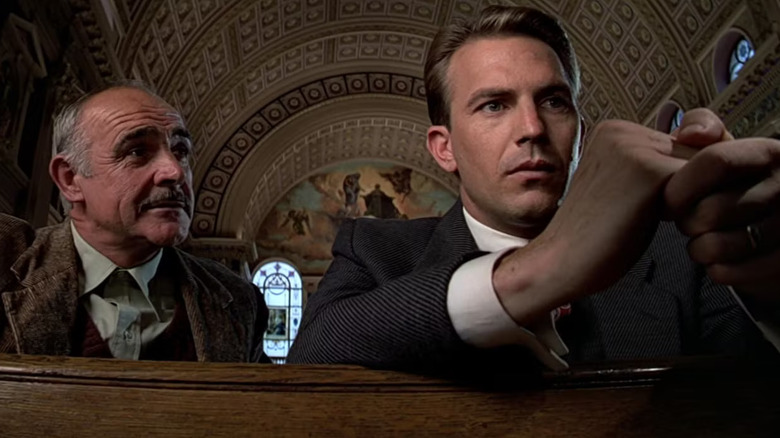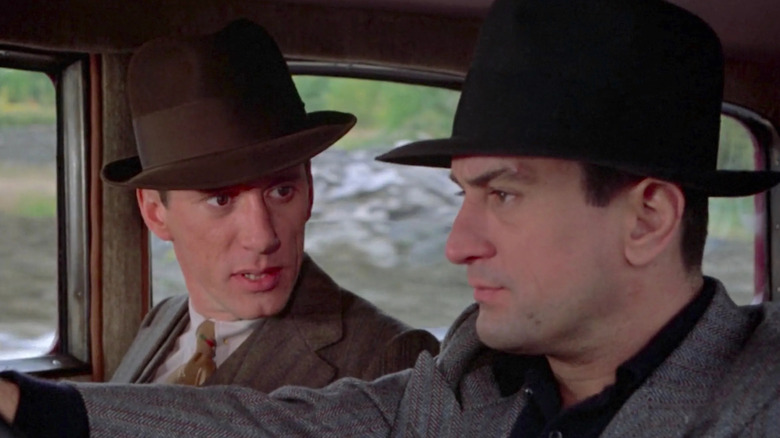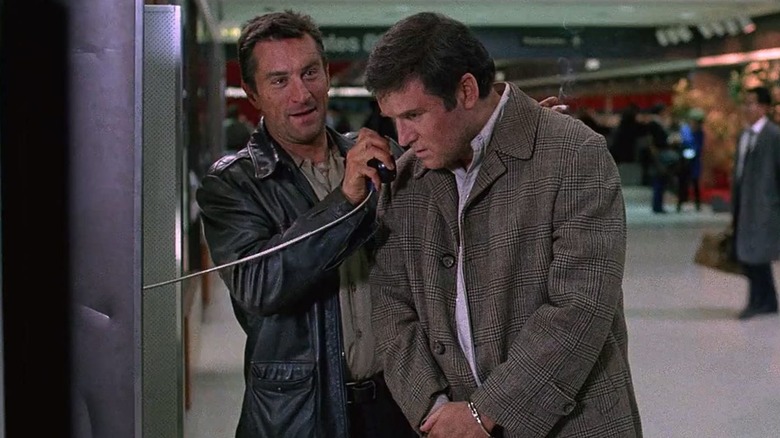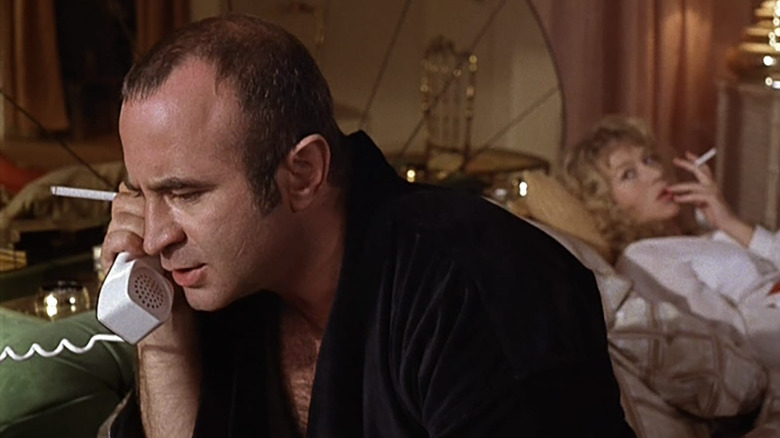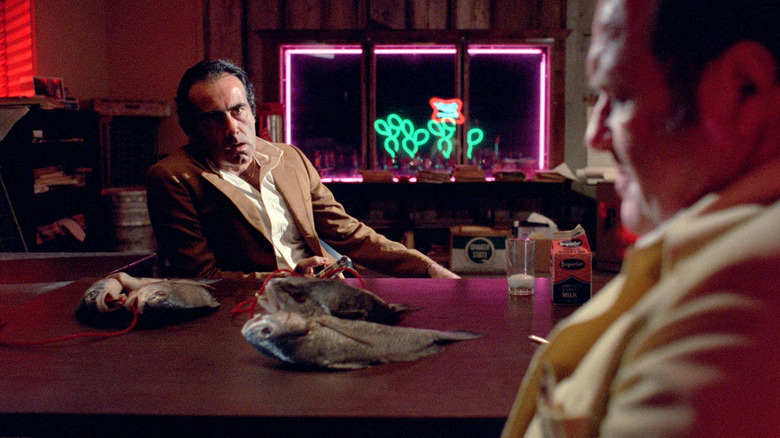12 Best Crime Thrillers Of The 1980s, Ranked
No decade produced crime films quite like the 1980s. The era was marked by the trials of killers like Ted Bundy and Jeffrey Dahmer, whose shocking violence penetrated popular culture in a manner then unseen; the exploits of professional criminals like Pablo Escobar and John Gotti; and, above all else, the policies and rhetoric of powerful political figures like Ronald Reagan and Margaret Thatcher, who promised infinite prosperity through cracking down on street criminals while deregulating the increasingly aggressive industries of those in white collars above
With danger seemingly around every corner and a distrust in institutions quietly growing, filmmakers turned their cameras to cops and killers, blurring the lines between law and order as they attempted to articulate a more transcendent kind of justice the world was aching for — or, alternatively, reveled in its apparent impossibility. From buddy cop adventures to blood-soaked mobster flicks, we've hand selected and ranked the greatest crime thrillers of the 1980s.
12. Scarface
Despite its placement on this list, there's an admittedly sound argument to be made that "Scarface" is the definitive crime thriller of the 1980s. This polarizing 1983 film (itself something of a stealth-remake of the equally controversial 1932 film of the same name) from director Brian De Palma and screenwriter Oliver Stone pushes the aesthetics of both the genre and the era at large to the limit, with sex, drugs, and violence trafficked in such high quantities throughout its narrative that it borders on irresponsible. And yet, with De Palma's stylish direction and a career-best performance from Al Pacino, "Scarface" is a messy masterpiece that spits at the feet of conventional sensibilities.
Pacino stars as Tony Montana, a Cuban immigrant who descends through the criminal underworld of Miami with the express intent of amassing as much power as possible, largely through controlling the illicit cocaine market. What follows is an epic of greed, paranoia, and excess that rivals the grand drama of a Shakespearean tragedy.
"Scarface" was far from a critical hit when it was released, an outcome many involved with the production were prepared for. Actor Steven Bauer, who played Manny Ribera in the film, recalled that Martin Scorsese predicted Hollywood would reject "Scarface" entirely for holding up a mirror to the town's own bad behavior. Stone, meanwhile, thought the story had been disastrously mangled by De Palma's direction. Others, particularly real Cuban immigrants, were understandably offended by the hostile implications made about their culture by the white creative team. Indeed, "Scarface" is a morally and at times even artistically questionable film — and yet, perhaps because nothing else like it has ever been made with the same earnestness, energy, and technical craft, it remains a peerless work of cinema.
11. 48 Hrs.
Just two years before Eddie Murphy would star in "Beverly Hills Cop" (an '80s crime flick that leans just a bit too far into the realm of outright comedy to make it on a list of thrillers), the legendary comedian and actor would star in another buddy-cop crime film called "48 Hrs." Though the former feature is more culturally prevalent today, we'd argue that "48 Hrs." is superior, if only for its ability to blend Murphy's talent for action comedy with the grit and danger of a genuine crime thriller.
Murphy plays Reggie Hammond, a professional criminal who offers to help San Francisco detective Jack Cates (Nick Nolte) apprehend his former boss — James Remar's escaped convict Albert Ganz — in exchange for a commuted sentence. Desperate to bring Ganz to justice, Detective Cates reluctantly (and illegally) takes Reggie into his custody for — you guessed it — 48 hours.
It isn't nearly as distinct as "Scarface," but there's a sleek, workman-like effectiveness to "48 Hrs." that deserves to be recognized. It also needs to be noted that, at the time, this narrative formula was almost entirely novel, which may be hard for contemporary audiences to fully appreciate. Director Walter Hill (best known for "The Warriors") smartly relies on his cast of actors to make the story work, with Nolte and Murphy specifically and effortlessly working as one of the best — and first — buddy cop duos in the subgenre's history.
10. Wall Street
While Oliver Stone might have been disappointed by the final cut of "Scarface," he would have a chance to write and direct his own '80s crime thriller that dealt with the same themes of money, sex, greed, and power in a more responsible, realistic fashion. In 1986, the filmmaker's Academy Award-winning "Platoon" opened many doors and allowed him to realize a concept that had been following him since the start of the decade: a white-collar crime thriller that depicted the moral bankruptcy of the booming American finance industry with the same ruthlessly critical, yet darkly seductive style that turned the stories of mobsters like Tony Montana into visually arresting cautionary tales.
The result was "Wall Street," a 1987 film that starred Michael Douglas as the psychopathic investor Gordon Gekko. The character is rightly remembered as one of the greatest cinematic villains of all time, whose unbridled lust for money not only dominates those he works for and against but comes to define the industry at large, swallowing up the altruistic and the selfish alike into a world that only serves to fatten Gekko's wallet. Douglas' performance is so captivating in the film that he earned an Academy Award himself, though, as the decades have gone on, he has developed a complicated relationship with how his character has become an antihero for aspiring investors.
Charlie Sheen also stars in the film, playing a budding stockbroker who prophesied this inevitable intoxication with Gekko. His character idolizes Douglas', and is coerced into illegal and unethical business dealings as a result, which puts him in conflict with not only his father (Martin Sheen of "The Departed," who is not-so-coincidentally Charlie Sheen's real-life dad) but the federal government. Even if "Wall Street" isn't remembered as the best movie about Wall Street ever made, it's the one that most vividly and presciently captures the relationship between the cultural and political shifts of the '80s and the growing corruption of the finance world.
9. To Live and Die in LA
Incidentally, "Wall Street" would be a perfect film to pair with William Friedkin's 1985 neo-noir crime thriller "To Live and Die in LA." While the former explores the excesses and contradictions of the Reagan-era through east coast, nigh-systemic industrial corruption, the latter does so through a street-level west coast cop thriller that follows one investigator's descent into a more insidious kind of corruption, as he relentlessly pursues a genius financial criminal and conman.
Willem Dafoe is Rick Masters, a prolific counterfeiter who has been able to evade capture for years (ironically, this villainous turn — which became the kind of role that would define Dafoe's career — is what earned him a rare heroic role in Oliver Stone's "Platoon"). He becomes the prime target of Los Angeles counterfeit investigator Richard Chance (William Petersen), a disgraced former secret service agent who nearly got Ronald Reagan killed, and is thus so intent on returning to the light that he's willing to dive deeper into the dark than he ever has.
Friedkin had already established himself as a master of the crime genre with "The French Connection," but there's an edgier style and sense of scale that makes "To Live and Die in LA" stand apart. It's one of the most underrated films of the decade, inspiring such modern crime thrillers as Edgar Wright's "Baby Driver."
8. The Hit
"The Hit" is the type of little-known treat we love to recommend to readers at /Film. Despite not even cracking a million dollars at the box office when it was released in 1984, this British crime thriller has become a cult classic of the genre, boasting a tight, tense story, superb direction from a then up-and-coming Stephen Frears (the filmmaker who would go on to helm "Dangerous Liaisons," "High Fidelity," and "The Queen"), and one-of-a-kind performances from actors whose work you're likely already enamored with.
The film centers around Willie Parker (a steely Terence Stamp), a reformed criminal who turned state's witness to secure what he believed would be an exit from the world of organized crime. His past eventually comes back to his doorstep in the form of Mitchell Braddock (John Hurt, in one of the best roles of his career), a cold hitman hired to exact revenge on behalf of Willie's ex-employer. As Mitchell takes Willie hostage in what is effectively a road trip to the death, the pair are forced to confront fear, moral solace, and the very nature of mortality. Tim Roth also makes his feature film debut as Myron, a fellow criminal and associate of Mitchell's.
7. Witness
After becoming one of the decade's biggest movie stars thanks to "Star Wars" and "Indiana Jones," Harrison Ford was in an enviable professional position. He was also absolutely exhausted with playing pulp heroes.
Fortunately, Ford got his chance to finally play a real person in "Witness," a 1985 crime thriller that became a massive sleeper-hit despite a fairly rocky development process. In addition to the fact that studios otherwise interested in Ford and "Witness" separately were far from sold on the idea that the actor could anchor a serious cop drama, the original script for the film was something of a known issue in Hollywood. Even Ford himself is said to have described it as "too stupid and violent." When director Peter Weir was brought on, however, he and Ford helped steer the story toward its ultimate Academy Award-winning destination.
The film follows Philadelphia investigator John Book (Ford) as he attempts to solve a murder with almost no resources beyond a single eyewitness — a young Amish boy (played by Lukas Haas). When it becomes clear that the perpetrators are intent on killing the witness, Book must protect him and his mother (Kelly McGillis) while hiding in their isolated community.
6. Blue Velvet
Crime thrillers, especially those released in the 1980s, are marked by paranoia, danger, and constant subversion. Threats just as commonly emerge from the police bullpen as they do the dark alleyways of whatever city a lone detective wanders hopelessly in search of a kind of justice that most seem to be skeptical even exists anymore. Yet even in this crowded line-up of twisted mysteries, David Lynch's "Blue Velvet" remains the most surprising, confounding, and thought-provoking of the suspects.
If one were to attempt to describe it as simply as possible, they might categorize it as a vigilante detective story. When young Jeffrey Beaumont (Kyle MacLachlan, a momentous piece of casting that in part happened because of Val Kilmer) discovers a rotting severed ear in his idyllic suburban front yard, his fascination with its origins slowly leads him into a horrifying underworld that seemingly revolves around the entrancing lounge singer Dorothy Vallens (Isabella Rossellini). That's barely even the skeleton of "Blue Velvet," however, as Lynch uses Jeffrey to thrust the viewer into a wildly unsettling and surreal world of violence, horror, and perverse beauty that defies categorization or summarization.
Critics broadly agree that "Blue Velvet" is Lynch's best work, and you'll find it at the top of our own list of the late auteur's films. It may also be Lynch's most accessible work, with MacLachlan recommending it as a fine entry point into his singular cinematic world.
5. The Untouchables
It should be a surprise to no one that genre master Brian De Palma made it onto this list twice, though in this case with a film far less polarizing than "Scarface." Written by David Mamet, "The Untouchables" is a historical crime thriller that dramatizes federal agent Eliot Ness' efforts to bring down legendary crime boss Al Capone at the height of prohibition in Chicago.
Robert De Niro, a frequent collaborator of De Palma's, reunites with the director as Capone, a role he accepted despite some initial apparent hesitation. The actor dragged his feet so much, in fact, that De Palma made serious overtures to Bob Hoskins — then paid him not to star in the movie when De Niro finally signed on (don't worry, this isn't the last we'll see of Hoskins on this list). Kevin Costner, who starred as Ness, also made casting difficult when he began playing hardball with the studio over $200,000. It worked out in the end, with De Palma rounding out his ensemble with Sean Connery, Andy Garcia, and Charles Martin Smith, all of whom deliver passionate performances (though Costner specifically wishes he could do certain things differently).
When it was released in 1987, "The Untouchables" was an even bigger hit with critics and audiences than "Scarface," and earned Connery a Best Supporting Actor award at the 60th Oscars.
4. Once Upon a Time in America
Like Brian De Palma, Robert De Niro is a name so synonymous with the crime thriller subgenre that he was always going to appear multiple times in our countdown. By the 1980s, he had already come to embody a kind of quintessential American antihero — tortured and complicated criminals, the likes of which audiences had developed an appetite for through films like Martin Scorsese's "Mean Streets," "The Godfather," and, of course, "Taxi Driver."
There was no one more perfect, then, to anchor Sergio Leone's monumentally ambitious crime thriller "Once Upon a Time in America." A blend of the western subgenre that had made the Italian director an internationally lauded artist and the gangster subgenre that had captivated the U.S. at the time, the film is a decade-spanning epic that follows De Niro's David "Noodles" Aaronson, a devout criminal working for the Italian mafia in New York City during the early 1900s. James Woods also stars as Max, Noodles' childhood friend with whom he raises through the ranks of the city's criminal underworld.
Leone made "Once Upon a Time in America" to preserve a dying breed of cinema — and while he may not have been able to prevent the imminent bend toward shallower storytelling, he laid the groundwork for such modern epics as "The Brutalist" and Christopher Nolan's "Oppenheimer."
3. Midnight Run
Even if Eddie Murphy and Nick Nolte helped define the buddy cop formula in "48 Hrs.," there's just no denying that it was pretty much perfected by Robert De Niro and Charles Grodin in "Midnight Run." Speaking of Murphy, this 1988 film was directed by Martin Brest, not long after he turned the comedian into an action star himself with "Beverly Hills Cop."
With "Midnight Run," Brest tones down the cartoonish action of his previous film and locks in on the tension emanating from De Niro and Grodin's endlessly watchable dynamic. The pair have more chemistry than most Hollywood duos we see today, playing a rough but lovable bounty hunter (De Niro) and the morally misunderstood criminal (Grodin) he's been charged with capturing. Unlike most stories of this kind, the drama only begins after the handcuffs come out, with their supposedly simple journey being derailed by car chases, train getaways, and helicopter shoot-outs, throughout which ideas of law and order are flipped and twisted with every turn. "Midnight Run" remains a classic of the crime genre, and talks of a sequel have persisted for decades at this point.
2. The Long Good Friday
Bob Hoskins may not have gotten to play Al Capone in "The Untouchables," but he arguably delivered the greatest gangster performance of any actor in the 1980s in "The Long Good Friday." A classic of the British crime genre, it stars Hoskins as Harold Shand, a London crime boss who singularly captures that compelling tension unique to this kind of story, between what a man thinks he is (in Shand's case, a businessman simply playing by a more universal set of rules, taking advantage of opportunity as any businessman would) and who he's truly become — a killer forever trapped in an endless cycle of violence.
In this way, "The Long Good Friday" should be considered a godfather to a story like "The Sopranos," where characters are not only complex and multilayered but actively forced to confront the reality of their choices in a way that robs their identity of all the mythology and prestige that keeps them in the dark. As Shand tries and fails to bridge his life of crime to a new life of legitimate prosperity, he is hampered and pursued by everything he's trying to leave behind (which, at one point, manifests in a tense meeting between Shand and an unnamed IRA soldier, played by Pierce Brosnan in his feature film debut). It's a masterpiece of cinema, and without question one of the best mob movies ever made.
1. Blood Simple
The debut film of the prolific and lauded filmmaking duo Joel and Ethan Coen, "Blood Simple" is one of the most influential independent films of the 1980s. The Coens would continue to define what the crime thriller would evolve into in the coming decade, reviving and remixing noir and western tropes while imagining stories that took place outside the usual cops and robbers dynamic. Their "heroes" are selfish, stupid, and self-sabotaging, motivated by lust or money to cross a moral line they can never cross back; their villains are all but the devil themselves, unshakeable and almost supernaturally wicked, set upon their prey by the latter's own moral weakness alone.
"Blood Simple" specifically chronicles the violent fallout of a discovered affair. When Texas business owner Marty (Dan Hedeya) rightly suspects his wife (Frances McDormand) of sleeping with his employee (John Getz), he hires a deranged private detective (M. Emmett Walsh) to kill them both. In true Coen Brothers style, the tale that unfolds thereafter is a perverse cross between a horror thriller and a comedy of errors, two disparate melodies that somehow harmonize on this memorable murder ballad. Though they think it's the worst movie they've ever made, we'd actually count "Blood Simple" as one of their best efforts, as well as the best crime thriller of the 1980s overall.
